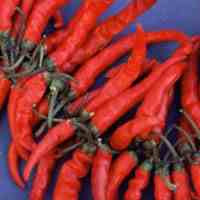Cleanse your body, protect it from disease, and enhance your health system by detoxing with these supportive foods.
BLOOD
What does it do? The blood is a specialized bodily fluid that supplies
substances and nutrients, such as sugar, oxygen, and hormones to our
cells. It carries waste away from the cells and contains clotting
agents. It is the circulatory system that holds the high-speed highways
of the blood for transport.
Supportive foods – Blood building and circulatory
supporting foods include dark green leafy vegetables such as dandelion
greens, kale, collard greens, spinach, arugula and broccoli; also
garlic, fresh ginger root, cayenne pepper, and protein-rich foods,
apricots, beans, wheat germ, and tofu.
LYMPH
What does it do? As a part of the immune system, lymph nodes are located
throughout the body and hold precious cells of the immune system. It’s
important to keep your lymph nodes healthy to reduce the risk of colds
and flus.
Supportive foods – Foods that support lymph node
function include clean proteins such as wild-caught fish and grass-fed
beef, citrus fruits, crimini mushrooms, turnip greens, spinach, and
kale, garlic, parsley, carrots, asparagus, strawberries, and tomatoes.
LIVER
What does it do? Besides being the second-largest organ in the body
(second to our skin), the liver processes virtually every transaction in
the body – sorting, packaging, storing and using nutrients, vitamins,
and minerals. This is one organ you’ll definitely want to nurture.
Supportive foods – There are two main detoxification
pathways of the liver—eat foods that nurture those systems, and you’ll
receive support in return. Foods include beets, leafy greens, broccoli,
Brussels sprouts, olive oil, flax seed oil, citrus fruits, garlic,
cabbage, green tea, avocadoes, and artichokes.
GALLBLADDER
What does it do? The gallbladder’s main function is to act as a place of
safe-keeping for bile, the green substance the liver produces. When
signaled to do so, the gallbladder releases bile to digest fats and
cholesterols.
Supportive foods – Specific nutrients help to maintain
the quality and integrity of the bile for digestion – without them, the
bile become thick, sluggish, and coagulated, causing gall stones. Foods
which help maintain integrity include beets, apples, cucumber, Swiss
chard, dandelion greens, lemon, flax seed oil, and sweet potato.
PANCREAS
What does it do? The pancreas manufactures and secretes the enzymes
necessary for digestion, including those that help digest proteins,
fats, and carbohydrates.
Supportive foods – Foods that support the pancreas
include anti-inflammatory foods and foods that help maintain healthy
blood sugar, including blueberries, cherries, broccoli, garlic, grapes,
spinach, kale, collard greens, Swiss chard, sweet potatoes, tomatoes and
tofu.
KIDNEYS
What do they do? The main function of the kidneys is to filter and clean
the blood. They also regulate blood pressure, minerals (including
potassium, sodium, chloride, calcium, and phosphorous), and acidity
levels within the body.
Supportive foods – Foods that support kidney health
include anti-inflammatory foods and foods which support mineral balance,
including parsley, bell peppers, cabbage, cauliflower, apples, garlic,
onions, cranberries, blueberries, strawberries, cherries, grapes, fish
and olive oil.
INTESTINES
What do they do? Both the small and large intestines work with the
absorption and elimination processes of our food and its nutrients.
Keeping our digestive system healthy also keeps other systems healthy,
such as our lymph and blood.
Supportive foods – Healthy intestines require a healthy
balance of good bacteria and proper elimination, enabling this system
to do its job. Supportive foods include insoluble and soluble fibers
such as flax seeds, beans, green leafy vegetables, oats, whole grains,
fresh fruits and vegetables, and more. Probiotic rich foods such as
yogurt, kefir, kombucha and other fermented foods are also extremely
useful.
Please note: Eating a healthy, balanced, clean diet full of
fresh fruits and vegetables, clean proteins, anti-inflammatory fats,
fiber, and more will also keep your body happy and healthy!
Please also note: None of the information provided is meant
to treat or diagnose disease or ailments. Always consult your doctor
before starting a new dietary or exercise regime.








